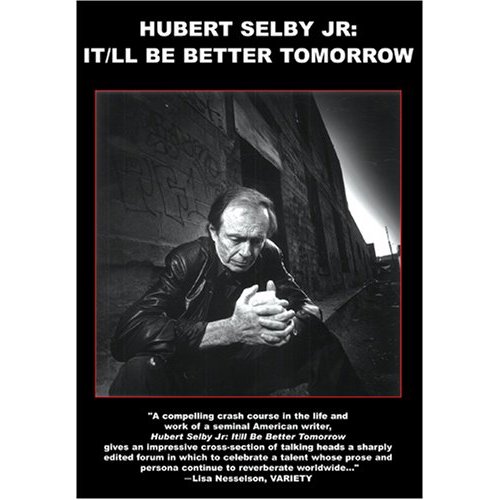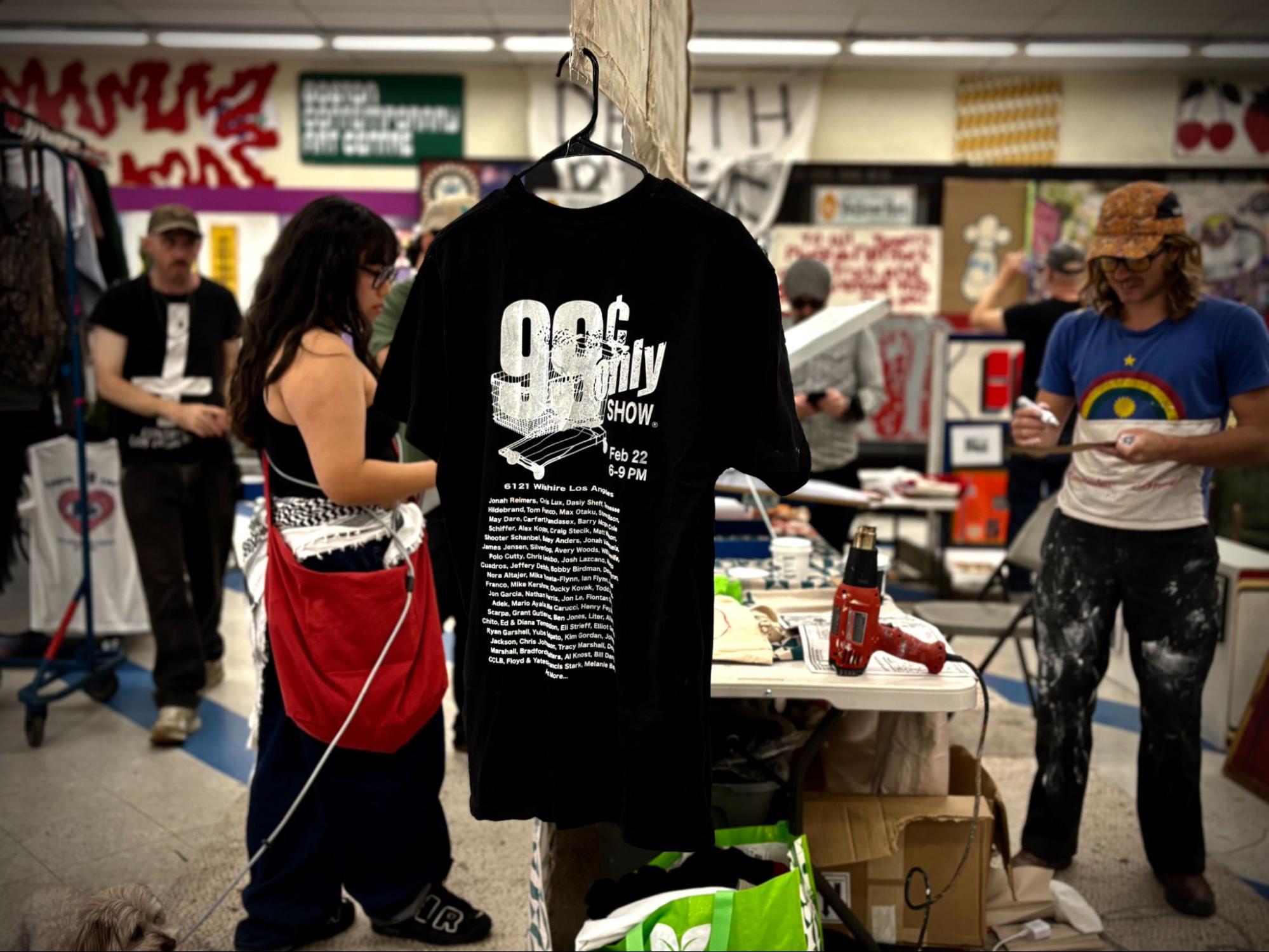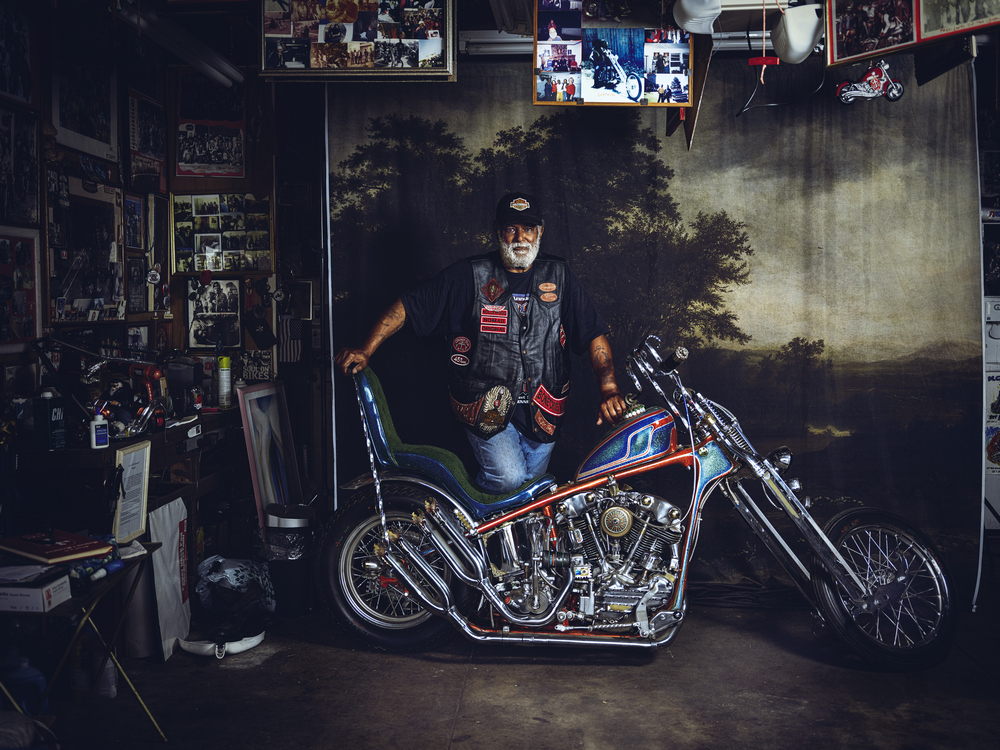"Selby was not the kind of writer who influenced you, he was the kind who saved your life." ~ Jerry Stahl
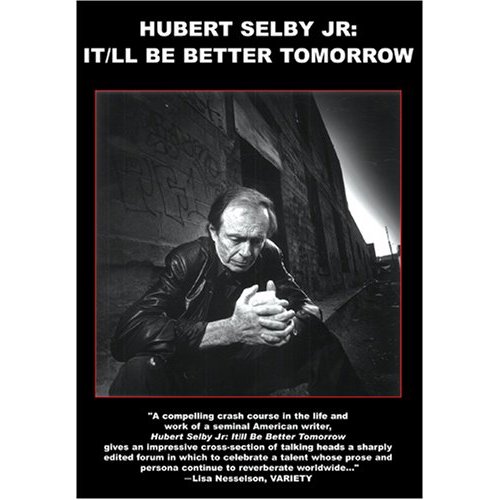
"Being an artist doesn't take much, just everything you got." ~ Hubert Selby Jr. aka Cubby Selby
When I moved from Paris, France to Los Angeles in 1991, I had three phone numbers in my pocket, one of which was Hubert 'Cubby' Selby's. I met the legendary author during my first visit to LA in April of that year. Selby was reading along with Henry Rollins at Largo on Fairfax (at the time known as Cafe Largo). Have you ever dreamed of meeting one of your favorite writers? For me, Henry Miller was dead, but Selby was well and living in Los Angeles. During the last years of his life, Miller put a note on his front door in Big Sur asking people to please respect his wish to be left alone. Selby was so approachable Rollins simply found his number in the phone book. I must say one of my motives to meet Selby was self-centered: "If a great writer befriends me, it means there must be a great writer in me."
Then the other reason. I had just read The Room and identified with that book in a way that I couldn't even reveal to myself at the time. People came to Cubby because they felt he knew their pain. Like everyone else before me, I was a little apprehensive to meet the author of a work of art that both attracted and terrified me. Even Rollins said he expected to find Selby living in a cave with rats crawling all around him. Then the day came when I sat across from this skinny man with turquoise blue eyes. "I've read The Room and I loved it and..." and I suddenly noticed that this man was... weightless... in a supernatural way.
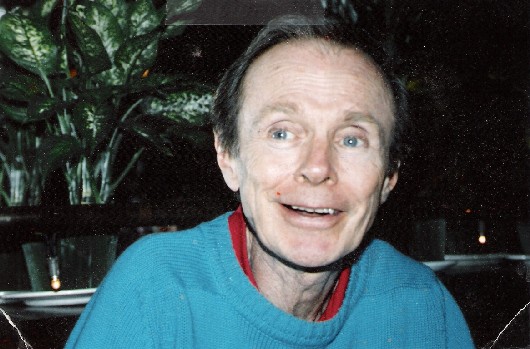
The second time I saw Cubby: Paris, 1991.
This devastatingly kind soul must be from another planet... no... this being was undeniably of us. He had lived through hell, died, and come back free and unburdened. Selby welcomed me in his life. Soon I forgot about the "do you know that I know Hubert Selby Jr., the great writer that I probably am too?" factor. I couldn't wait to drive my car or, in the early days, take the La Cienega MTA bus (at the time known as RTD bus) route 105 to West Hollywood to visit this man called Cubby, whose spirit, though set free, chose to turn around and come back in the confines of a tortuous body to move and inspire us, even if it meant having to cross back into the hell he escaped.
"Last Exit to Brooklyn" is Hubert Selby Jr.'s most famous novel, but the first one I ever read was his second: The Room. In my humble opinion, The Room is one of the bravest and greatest books ever written, though I totally understand Lou Reed when he confesses in the new documentary, "Hubert Selby Jr: It/ll be better tomorrow," that he declined an offer to write the music for the film version of Selby's Requiem for a Dream because he couldn't enter Cubby's world anymore.

"Arguably the darkest work of fiction in any language since the Bible." ~ Jerry Stahl
"He's taking you into a world in which you don't want to be and he makes you live there." ~ Gilbert Sorrentino, author, editor @ Grove Press, & childhood friend.
" 'Harry locked his mother in the closet,' may be the single greatest first sentence in the history of American fiction." ~ Jerry Stahl
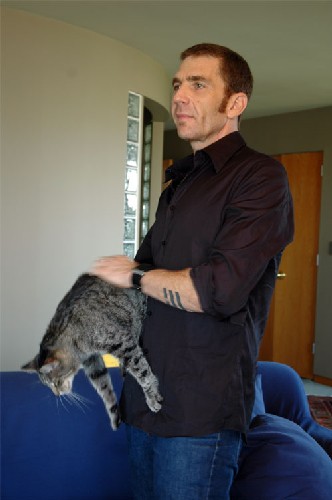
LA writer Jerry Stahl (Permanent Midnight, Plainclothes Naked, I Fatty,) interviewed in the documentary, is one of Selby's most eloquent friends:
“ 'When you write about somebody you hate,' (Cubby) told me, “ 'write about them with love . . .' This seemed, at the time, like a counterintuitive, if not downright suspect exercise. But I adhered to his direction with unquestioning fervor. Because, it soon became obvious, this wasn’t a writing tip — it was a survival tool. A weapon. By loving the monster, you kept both of you human. Whatever the monster is capable of, you are capable of too." ~ Jerry Stahl
French edition of Cubby's third novel: The Demon.
Perhaps the greatest first paragraph in the history of American fiction: "His friends called him Harry the Lover but Harry wouldnt screw just anyone. It had to be a woman. A married woman."
"Huber Selby Jr: It/ll be better tomorrow" released on DVD 3 years after Cubby Selby's death is a must-see for any Selby fan or anybody interested in meeting one of the most original and controversial American writers. In 80 minutes the film gives you all the facts you need to know about Cubby's life: the many predictions by doctors that he would not survive his bout with TB at the age of 16, the resulting unbearable physical pain he endured all his life, the drug and alcohol addictions and the spiritual experiences that inspired him to "transcend the human ego" in his writings, and in his life when he got sober at age 40 and remained so until he died in Los Angeles at age 75.
Saying yes to life. Drug free in LA in the 1990's.
"When I stop doing the things that make me unhappy, I will experience the happiness that is a natural state of being. " ~ Cubby Selby
Published in 1964, Selby's first novel "Last Exit to Brooklyn" is about the disappearance of love and its substitution by all kinds of moneyed activities... it is the landscape of spiritual anguish... it is about America." ~ Interviewee Michael Silverblatt, literary critic and KCRW radio host of "Bookworm."
Selby's books "were hotly desired by people who felt the secrets of life were not being revealed in contemporary literature and they were fiercely resisted as well... He wrote for people who wanted to know what to do at the sorest point of spiritual deprivation." ~ Michael Silverblatt
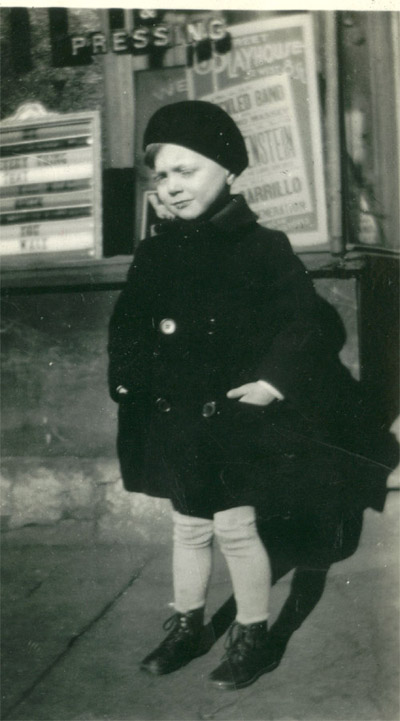
Lil' Cub in Brooklyn circa 1930's.
The documentary also boasts of first-rate stories by Selby's childhood friends: Cubby asked his doctors to give him the six ribs they removed so he could distribute them among his friends to use as letter openers. All the TB patients on his ward died except Selby. When his friend Carmine "Tony" Defeo asks Selby what he did with the money he earned from "Last Exit to Brooklyn," Cubby shows him the needle marks on his arms. Also featured are the British publishers who were sued in London for obscenity after the publication of "Last Exit to Brooklyn."
Published in 1998. "This book, The Willow Tree: I can’t even get criticism in this country; it’s been totally ignored." Cubby Selby
Special attention is given to Cubby's unique writing style which "broke rules with a purpose" and how music influenced him ("The guy uses words like musicians use notes.") Last and not least, Selby himself is interviewed. In his trademark gracious and relaxed manner, Selby imparts some of his irreverent wisdom: "I couldn't go to school long enough to become a conductor... I knew the alphabet so I figured I'll write." In a hilarious moment, Cubby criticizes the use of apostrophes in the words "dont" and "doesnt" and explains why he used slashes instead of "those phallic symbols."
Cubby's last novel published in 2002 by his faithful publisher, Marion Boyars, a British company since Cubby couldn't find a publisher in the US.
There is also sadness and outrage from Cubby's fellow artists as to why American critiques and literary circles shunned Selby while Europe gave him the respect he deserved. Michael Silverblatt rightfully questions why Selby doesn't share the same place in literary history as Dostoevsky. Like Cubby Selby, "Dostoevsky writes about misfits... and endless spiritual tarnish but Dostoevsky is an emanation of the Russian soul...which flies on misery. America is the happiness machine." Having been raised in Paris, I believe Cubby's books appealed to Europeans because we starved for a raw and authentic version of America to counterbalance the mindless TV series and feel-good Hollywood movies that invaded our screens.
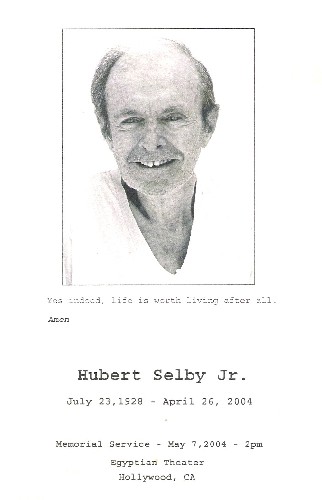
"Hubert Selby used to joke that, though The New York Times didn’t review his books, he was pretty fucking sure they’d run his obituary. He was right." ~ Jerry Stahl.
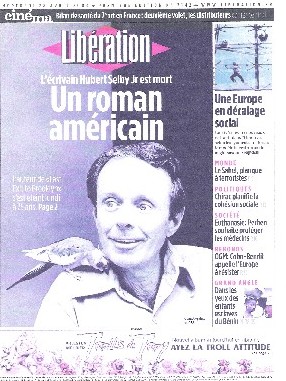
Selby's death makes the front page of France's second major newspaper and the paper dedicates 4 full pages in his honor.
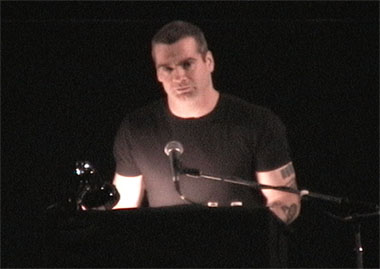
"Death was always just hovering around Cubby and he had no fear of it ever." ~ Henry Rollins, shown in the documentary speaking at Cubby's Memorial Service.
"Anger shaman" Henry Rollins, long-time friend of Selby and admirer of his work, has done a great deal to introduce Selby to the new generation of American readers by selling Cubby's books on his website www.21361.com and taking Selby on book reading tours in Europe where Selby was given rock star treatment by huge numbers of fans.
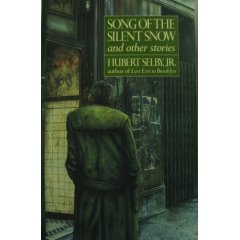
"We're taught in America to worship getting things... no one tells you that the purpose in life is giving." ~ Cubby Selby
"Hubert Selby Jr: It/ll be better tomorrow" which has yet to get a theatrical release in the U.S., is available for purchase on DVD through the official web site www.cubbymovie.com and if you're as broke as Cubby was a lot of his years, you can rent it on www.netflix.com or www.blockbuster.com. For exceptional insight into Selby's work, listen to Michael Silverblatt's audio interview in the Special Features.
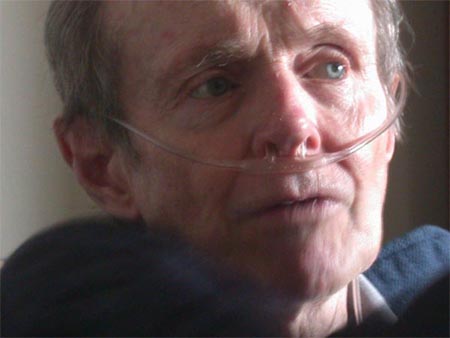
"This fiendish little Buddah guy." ~ Jerry Stahl
"Why do you have to try it their way? They think their way is the only way, the fools. Theyre so goddamn hardheaded they think their way is the only way and if you try it your way they make sure it screws up. Theyll make sure you end up holding the same old bucket of shit. Theyre afraid you might make it your way and then theyd have to admit they were wrong. But they make sure that doesnt happen. Theyd rather see you spend the rest of your life with your guts all tied up in knots and that foulness lodged in the back of your throat... They really dont care how much you suffer. They really cant feel other peoples pain... They hurt someone and then they pass it off. They hurt someone and they forget about it. They just forget about it... They just go home, get laid and go to sleep, just as if nothing ever happened." ~ This excerpt from Selby's "The Room" sounds like Selby's rant against the "anti-freedom and anti-art" man he called "Baby Bush."
Selby co-wrote this 2003 film at the request of Danish screenwriter/filmmaker Nicholas Refn. Fear X is available on DVD.
Additional sources: Jerry Stahl: Dark Angel, Remembering Hubert Selby Jr., obituary published in the LA Weekly. Rob Couteau: Defining the Sacred: Author Hubert Selby on Spirituality, the Creative Will and Love
